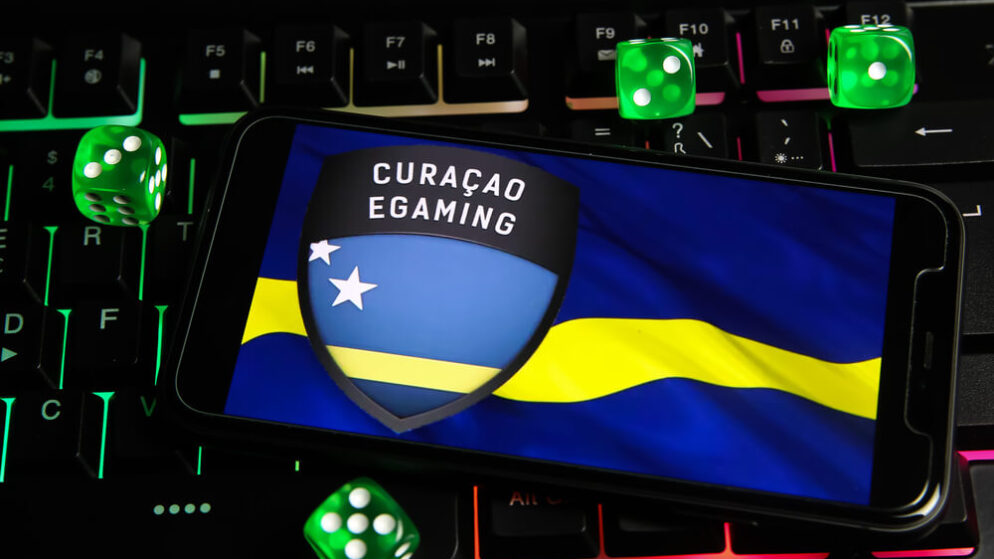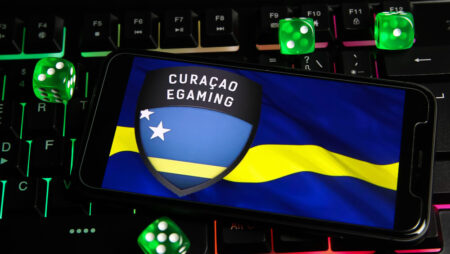

Existing and would-be gambling operators in the Curacao gaming industry should brace themselves for tighter oversight and regulations starting September 1, 2023, according to Javier Silvania, the island’s head of the Ministry of Finance.
The tiny Caribbean nation of Curacao has been overhauling its gambling regulations for quite a while in a bid to spruce up its image without alienating the licensees. The sweeping reform will introduce stricter rules for online operators and align the country with international standards.
Moreover, the overhaul will scrap the current master and sub-license arrangement in favor of setting up the Curaçao Gaming Authority (CGA), a new centralized yet independent gambling regulator with outright licensing, oversight, and enforcement roles across the board.
All new regulations brought upon by the reform are spelled out in the recently-drafted National Gambling Ordinance (Landsverordening op de Kansspelen, better known as LoK), which is poised to ramp up player protection, fraud prevention, and anti-money laundering controls.
The reform comes following concerted calls from the Dutch Government and industry experts to the island nation to bring its online gambling laws up to par with European jurisdictions like Malta, the UK, and Latvia.
The need for iGambling reform in Curacao
In some corners of the gaming industry, the Caribbean Island of Curaçao has for long been dubbed the ‘red-haired stepchild’ of gambling. This is especially true in the online gambling scene, where the jurisdiction has some of the most lenient regulations with barely any scrutiny for operators and low taxes.
It’s no surprise the jurisdiction has over time been flooded with shady operators who have taken advantage of Curacao’s existing liberal system to commit fraud, reap off players, and launder money.
The Curacao lawmakers and some stakeholders have fought long and hard for the industry to implement changes but they have frequently faced strong headwinds from actors looking to keep the status quo. The main critic and advocate for reform has been the Dutch government, of which Curacao is a constituent country.
The perfect opportunity presented itself in 2020 when the ABC islands asked for a bailout from the Netherlands after the prolonged lockdowns and travel restrictions from the coronavirus pandemic decimated Curacao’s tourism sector, its bread & butter.
The Dutch government agreed to send aid to Curacao if the island provided updates on a set of reforms in the country. Updates on the reform of online gaming regulations were one of the foremost conditions for the bailout.
With the reform, the Dutch Caribbean Island nation aims to not only appeal to its parent European country but also shed its image as the “red-haired stepchild” of gambling, Silvania said. The changes follow the broader trend of increasing transparency and responsible gaming through stronger anti-money laundering measures.
The nitty-gritty of Curacao’s iGaming overhaul
Thousands of gambling sites — be they online sportsbooks, bingo rooms, poker sites, or live casinos — call Curacao their virtual home, thanks to the jurisdiction’s low taxes and liberal regulations. The gambling license fees alone are rumored to rake in close to two billion dollars for Curacao, accounting for nearly half of the Caribbean island nation’s GDP.
Curacao’s gaming regulatory framework comprises four master licenses, currently held by E-Gaming nv, Antillephone nv, Curacao Interactive Licensing nv, and Gaming Curacao. Each holder offers up their own sub-licenses to any operator who wishes to operate under the jurisdiction of Curacao.
Master license holders are essentially private companies that wield near-total control of the gambling licensing in Curacao. Unfortunately, under this arrangement, the jurisdiction has become a haven for shady, flimsy, and fly-by-night operators.
Returning licensing authorization to CGA
Under the sweeping reform, the LoK first set out to establish the Curaçao Gaming Authority, a new regulatory body to oversee the industry and curb illegal activity, according to Finance Minister Silvania.
When the Sept. 1 deadline for the reform comes into force, the four master license holders will lose their licensing authorization and the CGA will take over. Not only that; the CGA will also wear the oversight and enforcement badges, essentially returning the regulatory role squarely in the hands of the government-controlled body.
The regulator already vets, licenses, and oversees all land-based gambling operations on the island. The CGA will simply expand its mandate to online gambling.
Tighter restrictions and upped player protection
Besides setting up the CGA, the reforms put forward an array of regulatory changes that starts implementing on September 1. For one thing, the regulator will implement a series of anti-money laundering curbs that cut the gamut from suspicious activity reporting to rigorous Know Your Customer (KYC) due diligence.
In a bid to ramp up fraud prevention, the reform calls for operators to implement strong encryption, password authentication, and a slew of other measures. They must put in place self-exclusion programs and bet limits, as well as abide by marketing regulations to better protect players from compulsive gambling whose risk has increased among Americans by 30% since 2018, according to Forbes Magazine.
Despite all these revamps, crypto exchanges and price-betting with cryptocurrencies like Bitcoin, Litecoin, and Ethereum will still be allowed until cryptocurrency-specific law is passed.
Licensing reforms
B2B suppliers and B2C operators like online casinos will be required to seek and renew their gambling licenses directly with the CGA. In line with updates shared with the Dutch government, Curacao gambling licenses will come with fees to help perk up the island’s coffers with more gaming tax revenue.
Mario Galea — a former chief executive of MGA and consultant for Curacao during the reform — ballparks that B2C operators will shell out €12,000 ($13,150) in fees for an annual license. They will also foot a €250 ($275) regulatory bill each month for every website address they register with the jurisdiction, on top of the €4,000 ($4,390) one-off license application fee.
B2B suppliers like Microgaming, Evolution, and Play’n GO, which recently renewed its Swedish supplier license, might have to wait a little longer to know their exact licensing fees.
Wrap-Up: Looking into Curacao’s gaming future
In the interim, existing sub-licensees can convert their licenses into 12-month transitional licenses. The government is registering all current sub-licensees, and only registered companies can obtain a transitional license. When all’s said and done, some operators will likely take flight come September 1, but the reforms that sweep through Curacao’s iGaming industry will undoubtedly paint the Caribbean Island nation in good light.



